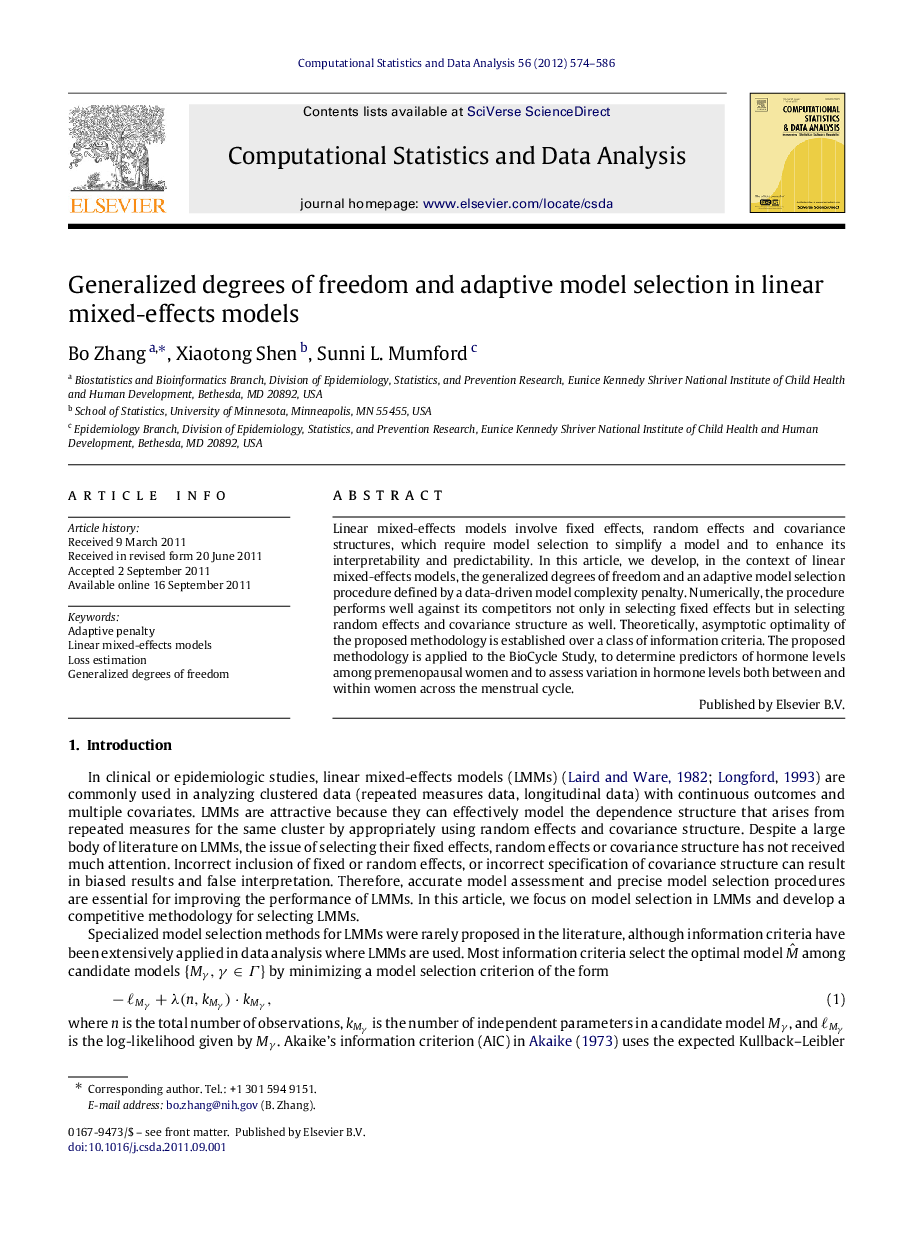| Article ID | Journal | Published Year | Pages | File Type |
|---|---|---|---|---|
| 415047 | Computational Statistics & Data Analysis | 2012 | 13 Pages |
Linear mixed-effects models involve fixed effects, random effects and covariance structures, which require model selection to simplify a model and to enhance its interpretability and predictability. In this article, we develop, in the context of linear mixed-effects models, the generalized degrees of freedom and an adaptive model selection procedure defined by a data-driven model complexity penalty. Numerically, the procedure performs well against its competitors not only in selecting fixed effects but in selecting random effects and covariance structure as well. Theoretically, asymptotic optimality of the proposed methodology is established over a class of information criteria. The proposed methodology is applied to the BioCycle Study, to determine predictors of hormone levels among premenopausal women and to assess variation in hormone levels both between and within women across the menstrual cycle.
